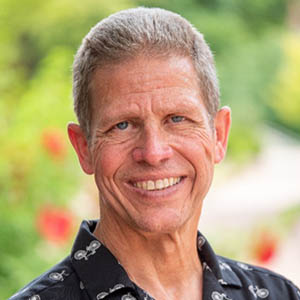 By Peter Titlebaum, EdD – Patient
By Peter Titlebaum, EdD – Patient
Why is it that men do not usually reach out for help from a support group? Having already written two articles on my journey with CLL, I must be qualified to write on this subject, despite my male gender. Talk about stereotyping! However, I will share my insight on the subject.
This quote from Groucho Marx may sum it up best for many men. “I don’t want to belong to any club that will accept me as a member.” This is especially so for those with cancer, any type of cancer.
Let’s go deeper into this topic. This is not a joke – at the end of the day, men and women are as different as night and day. It starts with how both genders grow up and pass through adolescence. How we evolve has changed in recent years, and this is a good thing. Current CLL groups probably lean to more traditional backgrounds and biases, which means fewer men in your group.
For the most part, the men you are hoping to reach came of age in the 1950s-1980s. To them, sharing feelings can seem like a foreign concept. They do not see this as an issue, as men simply think this is wired into their DNA. Think of what you were given to play with as a child. For most, girls got dolls to play with, which helped develop that concept of nurturing. Boys played with toy guns and trucks. Perhaps this disparity had a little impact on the developing male psyche!
If that was not enough influence on men, consider how we talk to boys. For example, if a boy falls and starts to cry, the response is “big boys don’t cry.” Men learn at an early age to mask how they are feeling so they do not seem weak.
Most men are adept at burying their feelings. This has become accepted and therefore expected; they are merely following a societal norm. To change a lifetime of learned behaviors is not easy. Layer onto this: a diagnosis. A well-intentioned person might ignore men’s tendency to push feelings down and insist they would benefit from being in a group and sharing with others.
Did you ever watch a Charlie Brown cartoon classroom scene where the teacher speaks? All we comprehend is noise and no discernible words. This is what it is like when you talk to men about their feelings – they hear something, but they really are just waiting for you to get tired of talking to them!
Helping a man get necessary insight requires an approach like you would with a wounded animal – proceed with caution! Remain calm. It could help to have another man reach out and encourage group participation. They are from the same planet, after all.
In recent years, I became involved with the CLL Society Patient & Caregiver Support Group in Cincinnati, OH. Laura Alexoff, the facilitator of the chapter, had read one of my CLL-related articles. Laura emailed and asked for my involvement in the group. I am not much of a joiner, so this was new territory for me. My first thought was about how information is power, and I had many questions. These people were in a similar situation. Perhaps they had some helpful experiences to share. New to this cancer journey, I had nothing to lose. Moreover, I might gain some insight and friendships along the way.
I credit the reason I might be a little more open than some males to my mom and sister, Joni. Early on in my development, they shared the secret that asking for help is a strength not a weakness. By asking for help, you enable someone else to give. Thus, the gift enriches both parties.
Peter Titlebaum, EdD, is a college professor at the University of Dayton. He is 61 years old, an avid cyclist and diagnosed with chronic lymphocytic leukemia in 2019. He is currently at stage 2 for CLL. In this article, Peter shares his next story on CLL told with humor, wit, and grace.
Originally published in The CLL Society Tribune Q3 2021.



